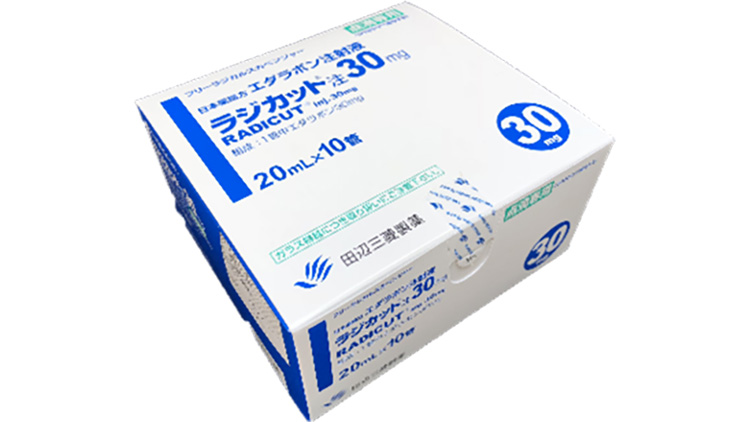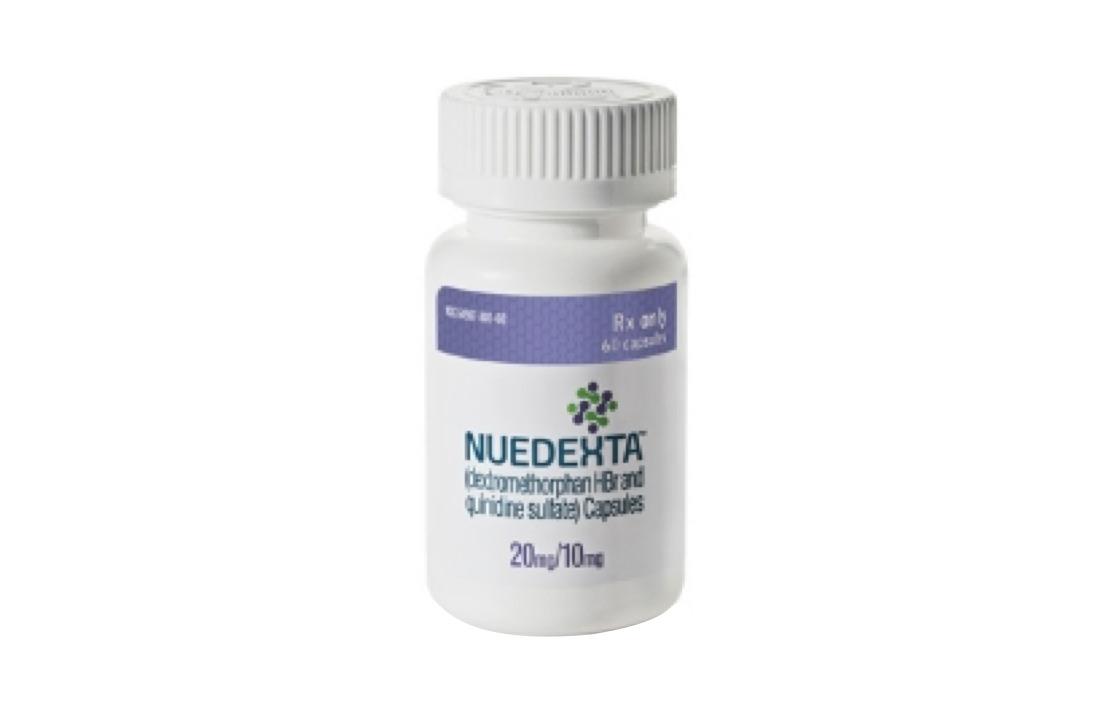Radicut (edaravone) vs Nuedexta (dextromethorphan HBr and quinidine sulfate)
Radicut (edaravone) vs Nuedexta (dextromethorphan HBr and quinidine sulfate)
Radicut (edaravone) is an intravenous medication approved for the treatment of amyotrophic lateral sclerosis (ALS), a neurodegenerative disorder; it works by reducing oxidative stress, potentially slowing the progression of the disease. Nuedexta (a combination of dextromethorphan HBr and quinidine sulfate) is an oral medication approved for the treatment of pseudobulbar affect (PBA), a condition characterized by sudden and uncontrollable laughing or crying, which can occur in various neurological disorders, including ALS. When deciding between these medications, it is important to consider the specific condition being treated: Radicut is for slowing ALS progression, while Nuedexta is for managing emotional symptoms associated with PBA.
Difference between Radicut and Nuedexta
| Metric | Radicut (edaravone) | Nuedexta (dextromethorphan HBr and quinidine sulfate) |
|---|---|---|
| Generic name | Edaravone | Dextromethorphan hydrobromide and quinidine sulfate |
| Indications | Amyotrophic lateral sclerosis (ALS) | Treatment of pseudobulbar affect (PBA) |
| Mechanism of action | Free radical scavenger | Dextromethorphan - NMDA receptor antagonist, Sigma-1 receptor agonist; Quinidine - antiarrhythmic agent |
| Brand names | Radicut, Radicava | Nuedexta |
| Administrative route | Intravenous | Oral |
| Side effects | Headache, gait disturbance, bruising | Dizziness, diarrhea, coughing, vomiting |
| Contraindications | Hypersensitivity to edaravone or any excipients of the formulation | Hypersensitivity to dextromethorphan or quinidine, history of heart failure or heart rhythm disorders, use with MAO inhibitors or within 14 days of stopping MAO inhibitors |
| Drug class | Neuroprotective agent | Combination drug: cough suppressant and antiarrhythmic agent |
| Manufacturer | Mitsubishi Tanabe Pharma | Avanir Pharmaceuticals |
Efficacy
Efficacy of Radicut (Edaravone) in ALS
Radicut, known generically as edaravone, is a medication that has been approved for the treatment of Amyotrophic Lateral Sclerosis (ALS), a progressive neurodegenerative disease. The efficacy of Radicut in ALS is attributed to its antioxidant properties, which are believed to relieve oxidative stress, a contributing factor in the neuronal cell damage associated with this condition. Clinical trials have indicated that edaravone can slow the decline in physical function in patients with ALS, particularly in the early stages of the disease and in those with less functional impairment at the time of treatment initiation.
One pivotal study that led to the approval of edaravone for ALS was a six-month, placebo-controlled trial conducted in Japan. The trial demonstrated that patients treated with edaravone experienced a smaller decline in the ALS Functional Rating Scale-Revised (ALSFRS-R), which measures physical functions such as walking, speaking, and breathing. However, it should be noted that not all patients with ALS respond to edaravone, and its efficacy may vary depending on the stage of the disease and individual patient characteristics.
Efficacy of Nuedexta in ALS
Nuedexta, a combination of dextromethorphan HBr and quinidine sulfate, is primarily approved for the treatment of pseudobulbar affect (PBA), a condition characterized by uncontrollable episodes of laughing and/or crying. PBA can occur in various neurological disorders, including ALS. While Nuedexta is not directly approved for the treatment of ALS itself, its efficacy in managing emotional lability in ALS patients has been recognized. Clinical trials have shown that Nuedexta can significantly reduce the frequency and severity of PBA episodes in patients with ALS, which can improve quality of life for these individuals.
Despite its benefits for PBA, there is limited evidence to suggest that Nuedexta has a direct effect on the progression of ALS or on the primary motor symptoms associated with the disease. The use of Nuedexta in ALS patients is typically focused on the symptomatic relief of PBA, rather than altering the course of the underlying neurodegenerative process. As with any medication, the decision to use Nuedexta for PBA in ALS patients should be based on a careful consideration of the potential benefits and risks, and it should be done under the guidance of a healthcare professional experienced in the management of ALS.
Regulatory Agency Approvals
Radicut
-
Food and Drug Administration (FDA), USA

-
Health Canada

-
Pharmaceuticals and Medical Devices Agency (PMDA), Japan

Nuedexta
-
Food and Drug Administration (FDA), USA

Access Radicut or Nuedexta today
If Radicut or Nuedexta are not approved or available in your country (e.g. due to supply issues), you can access them via Everyone.org.
How it works

Make an enquiry
Choose the medicine you want to buy, answer a couple of questions, and upload your prescription to speed things up. We’ll get back to you within 24 hours.


Make an enquiry
Choose the medicine you want to buy, answer a couple of questions, and upload your prescription to speed things up. We’ll get back to you within 24 hours.


Breeze through the paperwork
We'll guide you through the required documents for importing unapproved medicine, ensuring you have all the necessary information.


Get a personalized quote
We’ll prepare a quote for you, including medicine costs and any shipping, administrative, or import fees that may apply.


Receive your medicine
Accept the quote and we’ll handle the rest - sourcing and safely delivering your medicine.

Some text on this page has been automatically generated. Speak to your physician before you start a new treatment or medication.
Let's talk
If you have any questions, call us or send us a message through WhatsApp or email:
Contact us




